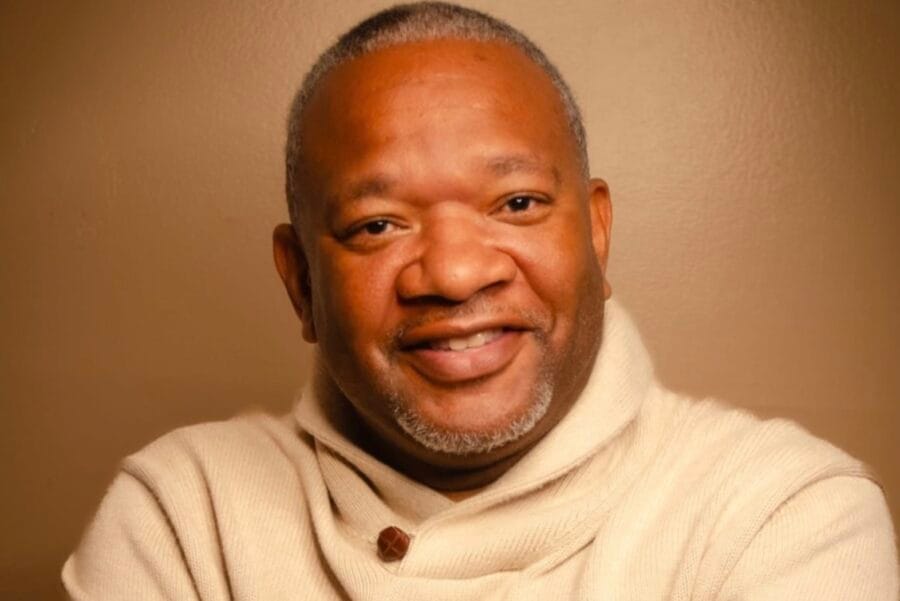
What follows is a list of Black Collar Crime stories published in 2024.
- Black Collar Crime: Evangelical Youth Leader Lindsey Whiteside Pleads Guilty to Having Sex with a Minor Girl
- Black Collar Crime: Evangelical Pastor Kevin Jones Accused of Soliciting a Minor
- Black Collar Crime: Evangelical Youth Pastor Zachary Radcliff Accused of Sexually Abusing Children
- Black Collar Crime: Evangelical Worship Pastor Arthur “A.J.” Bass Accused of Sexual Abuse
- Black Collar Crime: Evangelical Pastor Adrian Davis Accused of Wire Fraud and Filing False Tax Return
- Black Collar Crime: Presbyterian Pastor Stephen Melton Pleads Guilty to Paying Prostitutes for Sex
- Black Collar Crime: Evangelical Pastor Aaron Williams Accused of Having Sex in an SUV with a Woman Not His Wife
- Black Collar Crime: IFB Pastor Albert Wharton Sentenced to Eight Years in Prison for Child Sex Crimes
- Black Collar Crime: Evangelical Pastor Brett Kitko Accused of Taking Indecent Liberties with a Child
- Black Collar Crime: Evangelical Youth Pastor Jose Fierro Accused of Luring a Minor for Sexual Exploitation
- Black Collar Crime: Catholic Priest Ross Miceli Accused of Profiting From a Rigged Corvette Raffle
- Black Collar Crime: Evangelical Seminary Vice President Michael Deckinga Charged with Distributing Child Porn
- Black Collar Crime: Evangelical Youth Leader Ryan Denzer-Johnson Accused of Sexually Assaulting a Child
- Black Collar Crime: Evangelical Pastor Eligio “Eli” Regalado and His Wife Kaitlyn Accused of 3.4 Million Crypto Scam
- Black Collar Crime: Southern Baptist Pastor Neal Creecy Thought He Was Meeting a Teen Boy, Arrested Instead
- Black Collar Crime: Evangelical Youth Pastor Thomas Pinkerton Accused of Sexually Abusing Six Teens
- Black Collar Crime: Evangelical Pastor Daniel Merrick Sentenced to Prison for Child Pornography Possession
- Black Collar Crime: Evangelical Pastor Walter Masocha Sentenced to Ten Years in Prison for Sex Crimes
- Black Collar Crime: Southern Baptist Pastor William Jones Accused of Sexually Abusing Children
- Black Collar Crime: Evangelical Pastor Stanley Jay Accused of Sexually Molesting Church Teenager
- Black Collar Crime: Evangelical Pastor Jim Mustain Accused of Child Pornography Possession
- Black Collar Crime: Southern Baptist Pastor’s Wife Nancy Bertine Accused of Stealing $182,000 From Church
- Black Collar Crime: Evangelical Youth Pastor Roy Andrews Sentenced to 4-12 Months in Prison for Sexually Molesting Child
- Black Collar Crime: IFB School Teacher Joshua Dice Accused of Soliciting Minor for Sex
- Black Collar Crime: Evangelical Youth Pastor Shaun Hertlein Accused of Sex Crimes Involving Minors
- Black Collar Crime: Evangelical Youth Pastor Ryan McElrath Sentenced to 21 Years in Prison for Sexual Misconduct with a Minor
- Black Collar Crime: Southern Baptist Pastor Allan Jones Sentenced for Child Porn Possession
- Black Collar Crime: Methodist Pastor Myron Chorbajian and His Wife Face Numerous Sex Crime Charges
- Black Collar Crime: Evangelical Pastor Dominic Foor Accused of Sexually Abusing Teenagers
- Black Collar Crime: Baptist Pastor Douglas Jones Accused of Criminal Sexual Conduct
- Black Collar Crime: Youth Pastor Chaz Chinsethagid Sentened to Prison on Child Pornogpraphy Charges
- Black Collar Crime: Evangelical Bible Camp Youth Director Cody Robinson Accused of Child Pornography Possession
- Black Collar Crime: Evangelical Youth Pastor James Murphey Pleads Guilty to Abusing Three Church Teenagers
- Black Collar Crime: Volunteer Evangelical Youth Pastor Daniel Lamppin Accused of Sexually Abusing Two Foster Children
- Black Collar Crime: Southern Baptist Pastor Scott Haught Sentenced Up to 25 Years in Prison for Sexual Assault
- Black Collar Crime: Evangelical Bus Driver Tara Glan Accused of Sexually Assaulting Disabled Girl
- Black Collar Crime: Evangelical Pastor Yyersson David Solarte Basto Accused of Sexually Assaulting Underage Girls
- Black Collar Crime: Southern Baptist Church Volunteer Reagan Gray Sentenced to Probation for Sexually Assaulting a Minor
- Black Collar Crime: Baptist Church Treasurer Ernest Reddick Sentenced to One Year in Jail for Defrauding Church
- Black Collar Crime: IFB Pastor Daniel Champ Accused of Stealing $135,000 From Church
- Black Collar Crime: Evangelical Pastor James Henry Sentenced to 110 Years in Prison for Child Porn Possession
- Black Collar Crime: Youth Pastor Benjamin Felix Guerra Accused of Child Rape
- Black Collar Crime: Evangelical Pastor Gregory Jones Accused of Sex Trafficking
- Black Collar Crime: Southern Baptist Pastor Shane Wiggins Accused of Raping a Child
- Black Collar Crime: Evangelical Youth Pastor Benjamin Guerra Charged with Child Rape
- Black Collar Crime: Evangelical Pastor Leo Parker Arrested for Sexual Misconduct with a Child
- Black Collar Crime: Evangelical Worship Pastor William Johnson Pleads Guilty to Hiding Camera in Church Bathroom
- Questions About the Black Collar Crime Series Answered
- Bruce Takes Revival Fires to the Woodshed
- Black Collar Crime: Evangelical Pastor Marvin Upton Sentenced to Twenty-Seven Months for Fraud
- Black Collar Crime: Evangelical Pastor Samuel McKinney Found Guilty of Raping a Child
- Black Collar Crime: Evangelical Pastor Waymon Jordan, Sr. Accused of Sexually Assaulting Minor Girl, Commits Suicide
- Black Collar Crime: Baptist Pastor Jeffery Summers Accused of Obscene Communication with a Minor
- Black Collar Crime: Evangelical Youth Pastor Daniel Menelaou Charged with Possession of Child Pornography
- Black Collar Crime: Evangelical Pastor Paul Coleman Accused of Sexually Assaulting Church Children
- Black Collar Crime: Evangelical Megachurch Pastor Robert Morris Accused of Lewd Acts with a Child
- Black Collar Crime: Evangelical Pastor Bradrick Vail, Sr. Found Guilty of Sexual Misconduct
- Black Collar Crime: Evangelical Pastor Tony Elliott Accused of Stealing over $230,000 from Church
- Black Collar Crime: Evangelical Pastor Stricjavvar Strickland Accused of Embezzlement
- Black Collar Crime: Evangelical Pastor Brian Herring Sentenced to Probation for Stealing $500,000 From Church
- Black Collar Crime: Church Elder Nicholas Jackson Sentenced to Only 120 Days in Jail for Child Sex Crimes
- Black Collar Crime: Evangelical Pastor Charles Brinson Accused of Sexually Assaulting Teenagers
- Black Collar Crime: Volunteer Evangelical Teacher Robert Watson III Accused of Sexual Abuse
- Black Collar Crime: Evangelical Pastor Gabriel Hardy Accused of Beating Church Kid with Belt
- Black Collar Crime: Evangelical Pastor William Galbreath Accused of Numerous Sex Crimes
- Black Collar Crime: IFB Youth Pastor Stephen Hutto Accused of Sexually Assaulting a Minor Girl
- Black Collar Crime: Evangelical Group Home Worker Dale Burbank Charged with Raping a Child
- Black Collar Crime: Evangelical Missionary Jackie Shroyer Charged as Co-Author of Her Husband’s Murder
- Black Collar Crime: IFB Pastor Tony Shaw Convicted of Sexual Assault, Faces More Charges
- Updated: Black Collar Crime: Evangelical Youth Pastor Robert Fenton Pleads Guilty to Sexually Assaulting Church Teen
- Black Collar Crime: IFB Pastor Harold Cole, Jr. Accused of Sexually Assaulting a Boy
- Black Collar Crime: Catholic Priest Joseph Mouser, A Serial Child Molester, Accused of Sexually Molesting Children Decades Ago
- Black Collar Crime: Financial Administrator Chelsa Kinsella Accused of Stealing From Church
- Black Collar Crime: Evangelical Pastor Francis Young Accused of Sexually Abusing His Grandchildren
- Black Collar Crime: Disciples of Christ Pastor Arturo Laguna Camas Accused of Voyeurism
- Black Collar Crime: Catholic Priest William Damroth Pleads Guilty to Grand Larcency
- Black Collar Crime: Evangelical Pastor Kevin McDonald and Accomplice Rob Bank
- Black Collar Crime Stories for 2024
- Black Collar Crime: Evangelical Pastor Bruce Konold Sentenced to Jail Time for Taking Sexual Advantage of Woman He was Counseling
- Black Collar Crime: Evangelical Counselor and Pastor Raymond Gaglardi Convicted of Sexual Assault, Facing More Charges
- Black Collar Crime: Mormon Prophet Samuel Bateman Sentenced to 50 Years in Prison for Sex Crimes Against Children
- Black Collar Crime: Evangelical Pastor Anthony Strickland Sentenced to Ten Years in Prison for Sexually Assaulting Young Girls
- Black Collar Crime: Former Catholic Youth Worker Brian Werth Sentenced to 37 Years in Prison for Child Pornography Crimes
- Black Collar Crime: Evangelical Pastor Richard McGee Accused of Sexual Misconduct with a Minor Girl
- Black Collar Crime: Evangelical Pastor Josh Lough Accused of Domestic Violence
- Black Collar Crime: Evangelical CEO of ‘My Faith Votes’ Jason Yates Charged with Possession of Child Pornography
- Update: Black Collar Crime: Evangelical Youth Pastor Brett Bymaster Accused of Child Sexual Abuse
- Black Collar Crime: Youth Leader Abraham Coronado Sentenced to Life in Prison for Sexual Abuse
- Black Collar Crime: Director of Religious Education Craig Daugherty Charged with Sexual Abuse of a Minor
- Black Collar Crime: United Methodist Pastor James Houston III Charged with Child Solicitation
- Black Collar Crime: Evangelical Pastor Danny Pitts Convicted of Sodomy, Sentenced to 20 Years in Prison
- Black Collar Crime: Evangelical Pastor Francier Obando Pinillo Accused of Bilking Almost $6 Million From Church Members
- Black Collar Crime: Evangelical Worship Leader Hunter Eubanks Accused of Sexually Assaulting Church Teen
- Update: Black Collar Crime: Southern Baptist Pastor James McMillan Accused of Lewd Act with a Child
- Black Collar Crime: Evangelical Pastor Kurt Schenk Accused of Sexually Assaulting Developmentally Disabled Woman
- Update:Black Collar Crime: IFB Pastor Robert Jaynes Jr. Has Sentence Commuted by President Biden
- Black Collar Crime: Evangelical Assistant Pastor Arturo Alarcon Arrested on Child Pornography Charges
- Black Collar Crime: Evangelical Church IT Specialist Felix Sung Accused of Sexual Exploitation of a Minor
- Update: Black Collar Crime: Southern Baptist Student Pastor Daniel Mayfield Pleads Guilty to Child Porn Possession
- Update: Black Collar Crime: Evangelical Pastor Roy Shoop Sentenced to 25 Years in Prison for Rape
- Black Collar Crime: Evangelical Youth Worker Jackson Gatlin Pleads Guilty, Sentenced to 13 Years in Prison for Sex Crimes
- Black Collar Crime: Evangelical Youth Worker Timothy Brown Found Guilty of Sodomy and Other Sex Crimes
- Black Collar Crime: Nazarene Church Member Charles Sulivant Accused of Sexual Abuse — Pastors and Superintendent Covered-Up Crimes
- Black Collar Crime: Anglican Vicar Ifor Whittaker Sentenced to Life in Prison for Raping Six-Year-Old Church Boy
- Black Collar Crime: Evangelical Pastor Zachary King Indicted on Seven Sex Crimes
- Black Collar Crime: Evangelical Pastor Geoffrey Carter Accused of Several Sex Crimes Against a Minor
- Black Collar Crime: Ohio IFB Pastor George Bell Charged with Raping a Child Under the Age of Ten
- Black Collar Crime: Evangelical Pastor’s Wife Mary Cowan Charged with Failing to Report Husband’s Crimes
- Black Collar Crime: Evangelical Pastor James Cowan Sentenced to 50 Years in Prison for Raping His Children
- Update: Black Collar Crime: Episcopal Preschool Teacher Mark Eichorn Pleads Guilty to Possession of Child Pornography
- Black Collar Crime: Evangelical Pastor Rodney Locklear Accused of Sexually Assaulting Church Teenager
- Black Collar Crime: Brite Divinity School Professor Charles Bellinger Arrested on Child Porn Charges
- Black Collar Crime: Evangelical Pastor Gabe Mills Charged With Capturing an Intimate Representation Without Consent
- Black Collar Crime: Evangelical Pastor James Swanson Sentenced to Three Years in Prison for Child Pornography Possession
- Black Collar Crime: Youth Pastor and Registered Sex Offender Marvin Scales Sentenced to Fifty Years in Prison for Sexual Assault
- Black Collar Crime: Evangelical Pastor Bertheophilus Bailey Accused of Sexually Assaulting His Daughter
- Black Collar Crime: Baptist Pastor Rocky Goodwin Accused of Child Porn Possession
- Black Collar Crime: Evangelical Discernment Pastor JD Hall Convicted of Embezzling Money From Church
- Christian Man Thinks I Turned From the Faith So I Could Commit Immorality
- Why Evangelical Church Members Have a Hard Time Believing Their Pastors Do Bad Things
- Black Collar Crime: IFB Pastor David Baker Kills Himself Instead of Facing Sexual Battery Charge
- Black Collar Crime: Evangelical Pastor Randy Saylor Accused of Sex Crimes Against Children
- Black Collar Crime: Baptist Pastor Kenneth Flowers Accused of Sexually Assaulting Minor
- Black Collar Crime: Evangelical Worship Pastor Jordan Henderson Accused of Sexually Molesting School Girls
- Black Collar Crime: Southern Baptist Pastor Jonathan Elwing Charged with Over 20 Counts of Child Pornography Possession
- Black Collar Crime: Evangelical Pastor Jonathan Shaheen Sentenced to Two Years in Prison for Sexual Exploitation of a Child
- Black Collar Crime: Southern Baptist Student Pastor Luke Cunningham Accused of Sexually Assaulting Church Girl
- Black Collar Crime: Evangelical Pastor Bobby Hawk Accused of Sexually Abusing Twelve-Year-Old Church Girl
- What Are We to Make of an Evangelical Preacher Who Defends a Pastor Who Sexually Assaulted a Twelve-Year-Old Girl?
- Black Collar Crime: Evangelical Choir Leader Rafael Magana Sentenced to Two Years in Prison for Sexual Abuse
- Black Collar Crime: Evangelical Youth Pastor Bryan Crabtree Accused of Sexual Misconduct with Children
- Black Collar Crime: Evangelical Pastor Ronnie Killingsworth Sentenced to 84 Years in Prison for Sex Crimes Against Minor Girls
- Black Collar Crime: Evangelical Pastor Elias “Solomon” Jothi Shoots Upskirt Videos of Women, Pleads Guilty to Disorderly Conduct
- Black Collar Crime: IFB Church Volunteer Angela Klickner Accused of Sexually Assaulting Minors
- Black Collar Crime: Seventh-Day Adventist Elder Clinton Bucknor Accused of Sexually Abusing Minor Girl
- Black Collar Crime: Evangelical Pastor Bruce Hollen Arrested on Child Porn Charges
- Black Collar Crime: Evangelical Pastor Jose Lozano Accused of Sexually Molesting Foster Children
- Black Collar Crime: Evangelical Pastor Kenneth Sapp Accused of Exposing Himself to Undercover Officer
- Black Collar Crime: Southern Baptist Youth Worker Ralph Britt, Jr. Arrested on Child Porn Charges
- Black Collar Crime: Southern Baptist Youth Pastor Christopher Codding Pleads Guilty to Child Sex Crimes
- Black Collar Crime: Catholic Priest Leo Riley Accused of Sexually Molesting Four Altar Boys in the 1980s
- Black Collar Crime: Evangelical Pastor Vernon Williamson Sentenced to Life in Prison for Sexual Battery
- Black Collar Crime: United Church of Christ Pre-K Teacher Joshua Leduc Pleads Guilty to Sexually Molesting Children
- Black Collar Crime: Evangelical Pastor Keith Holt and His Wife Accused of Child Abuse and Neglect
- Update: Black Collar Crime: Evangelical Youth Pastor Estevan Diaz Sentenced to 20 Years in Prison for Sexual Assault
- Black Collar Crime: Evangelical Pastor Dennis McCranie Charged with Child Sexual Battery
- Update: Black Collar Crime: IFB Evangelist Benjamin Garlick Accused of Sex Crimes Against Children, Wife Charged Too
- Black Collar Crime: Former Evangelical Youth Pastor Hipolito Gomez-Perdomo Accused of Sexually Assaulting Church Girls
- Black Collar Crime: Evangelical Pastor Michael Bryant Accused of Theft
- Update: Black Collar Crime: Evangelical Volunteer Brandon Saylor Sentenced to 5-15 Years for Sexual Misconduct with Children
- Update: Black Collar Crime: Evangelical Pastor Steve Parker Sentenced to 54 Months in Prison for Drug Trafficking
- Update: Black Collar Crime: Evangelical Pastor Willie Wilkerson Sentenced to Five Years in Prison for Drug Trafficking
- Black Collar Crime: Southern Baptist Pastor Dean Smith Sentenced to 30 Years in Prison for Sex Crimes Against Minor Girls
- Black Collar Crime: Evangelical Pastor Daniel Harris Sentenced to Eighteen Years in Prison for Sex Crimes Against Children
- Black Collar Crime: Southern Baptist Pastor Monte Chitty Accused of Sexually Assaulting Church Teen
- Black Collar Crime: Evangelical Pastor Frank Johnson Arrested for Soliciting Prostitution
- Black Collar Crime: Baptist Pastor Nathan Legault Sentenced to Two Years in Prison for Possession of Child Pornography
- Black Collar Crime: Evangelical Pastor Russell Tusing II Charged with Child Molestation
- Update: Black Collar Crime: Evangelical Youth Pastor Kevin Madden Facing Trial for Sex Crimes
- Black Collar Crime: Evangelical Pastor David Helbling Accused of Sexually Assaulting a Minor
- Black Collar Crime: Evangelical Pastor Larry Mullins Sentenced to 15-45 Years in Prison for Sexual Abuse
- Update: Black Collar Crime: Evangelical Pastor Chad Pindell Sentenced to Three Years in Prison for Seducing Teen Girl
- Black Collar Crime: Evangelical Basketball Coaches David and Rachel Wakefield Accused of Sexually Abusing Student
- Black Collar Crime: Evangelical Pastor Mark Hatcher Convicted of Sex Crimes Against Children
- Black Collar Crime: Evangelical Children’s Director Kenneth Rose Sentenced to Four Years In Prison for Child Sex Crimes
- Black Collar Crime: Church of Christ Pastor Brian Dicken Sentenced to Five Years in Prison for Taking Indecent Liberties with Minor Church Girl
- Black Collar Crime: Southern Baptist Pastor William Kannarney Arrested on Prostitution Charges
- Update: Black Collar Crime: Evangelical Pastor Bret Welty Pleads Guilty to Sexually Molesting Teen Girl
- Black Collar Crime: Evangelical Pastor Luverne Zacharias Accused of Sexually Molesting Minor Church Girl
- Black Collar Crime: Evangelical Children’s Pastor James Dryden Arrested on Child Pornography Charges
- Update: Black Collar Crime: Evangelical Pastor Philip Grandine Finally Headed to Prison for Drowning His Wife in Bathtub
- Update: Black Collar Crime: United Methodist Pastor Dennis Laferty Sentenced to Two Years in Prison for Sexually Molesting His Daughters
- Updated: Black Collar Crime: Sharon and Donald Windey Sentenced to Years in Prison for Abusing Adopted Children
- Black Collar Crime: Evangelical Pastor Dwayne Waden Accused of Assault
- Black Collar Crime: Lutheran Pastor Erin Gullickson Convicted of Stealing $80,000 From Church
- Black Collar Crime: Southern Baptist Pastor Jamie Steele Charged With Driving While Impaired
- Update: Black Collar Crime: Evangelical Pastor Karey Heyward Given Suspended Sentence for Sexual Misconduct with a Minor
- Update: Black Collar Crime: Evangelical Pastor Stephen Mendoza Arellano Sentenced to Six Years in Prison for Sex Crimes
- Update: Black Collar Crime: Evangelical Youth Leader John Brownlow Sentenced to Six Years in Prison for Sexual Exploitation of Minor
- Black Collar Crime: Ohio Evangelical Pastor William Dunfee Found Guilty for His Part in January 6 Insurrection
- Black Collar Crime: Evangelical Youth Pastor Trent Rogan Found Guilty of Statutory Rape
- Black Collar Crime: Evangelical Youth Pastor Corey White Pleads Guilty to Child Pornography Charges
- Black Collar Crime: Evangelical Pastor James Randolph Accused of Sexual Assault









